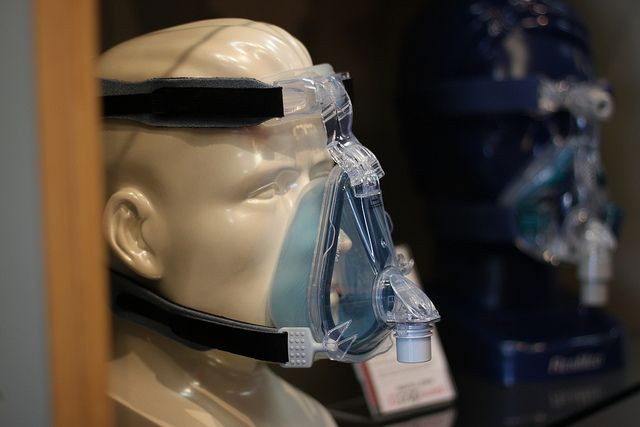Tonsillectomy For Sleep Apnea Increases Adolescents' Risk For Weight Gain

Overweight children who suffer from sleep apnea and have their tonsils removed may experience future weight gain, a new study finds, highlighting the importance of proper nutrition and fitness levels to alleviate underlying conditions.
Sleep apnea comes in two flavors: obstructive sleep apnea and central sleep apnea. When it comes to obesity, obstructive sleep apnea dominates, marked by excess fat deposits on the inner walls of the neck and throat, combined with the sufferer’s obstructive tongue, that slow respiration or stop it entirely. Tonsillectomies, for this reason, have been found to alleviate some of the blockage inside the throat.
According to the new research, however, the space once occupied by tonsils could be replaced by fat. "After surgery, parents are often very satisfied," said lead researcher Dr. Eliot Katz, a respiratory disease specialist at Boston Children's Hospital, to WebMD. "Their kids are sleeping better, and they may be better behaved and doing better in school. But there's this insidious issue of weight gain."
Katz and his colleagues analyzed the sleep habits of 204 children between the ages of 5 and 9 who were instructed to undergo surgery, and 192 who were recommended a wait-and-see approach. Seven months after the experimental group had their tonsils removed, the researchers checked back to see who had gained weight. Among normal weight kids, they found no noticeable difference. Among children who were already overweight, however, 52 percent went on to gain significant amounts of weight.
The findings reinforce a well-proposed, though lightly tested, hypothesis about OSA: When people wake during the night, their added activity levels plus disrupted hormone balance make for more energy burned overall. But when OSA subsides, and people can finally achieve a full and restful night’s sleep, their hunger hormones overcompensate and so they eat more. Prior research has found this effect in adults as well.
The simplest solution is weight loss. This advice, of course, applies regardless of whether an overweight patient suffers OSA or not. For kids who suffer from the condition, losing weight via diet and exercise may erase the need for a tonsillectomy altogether. As Dr. Sangeeta Chakravorty, co-director of the pediatric sleep evaluation center at Children's Hospital of Pittsburgh, points out, gaining weight after relieving OSA isn’t always a negative. Kids who are underweight may find the new metabolic shifts beneficial.
The link between OSA and weight gain is somewhat paradoxical, Katz concedes. Typically, when adults fail to reach their nightly slumber quota, the next day they feel drowsy and lethargic. But Katz says kids are a different story. They become hyperactive — think wired, not sleep-deprived.
For this reason, researchers allege, kids who suffer from OSA often go onto get misdiagnosed with ADHD (attention-deficit hyperactivity disorder). The disorder has risen in prevalence over the last several years, and some speculate the rise has less to do with “what’s in the water,” and more with underlying issues, such as sleep disorders. “Lack of sleep is an insult to a child’s developing body and mind that can have a huge impact,” said Karen Bonuck, professor of family and social medicine at Albert Einstein College of Medicine, to The New York Times.
Bonuck was the lead author of a 2012 study of more than 11,000 children over six years. Those children who showed sleep problems, such as snoring, mouth breathing, or apnea, were 40 to 100 percent more likely to exhibit ADHD-like symptoms. Given the profundity of the findings, Bonuck pointed to the dearth of sleep research as a glaring problem in the academic and health-related communities.
“It’s incredible that we don’t screen for sleep problems the way we screen for vision and hearing problems,” she said.
Source: Katz E, Moore R, Rosen C, et al. Growth After Adenotonsillectomy for Obstructive Sleep Apnea: An RCT. Pediatrics. 2014.



























